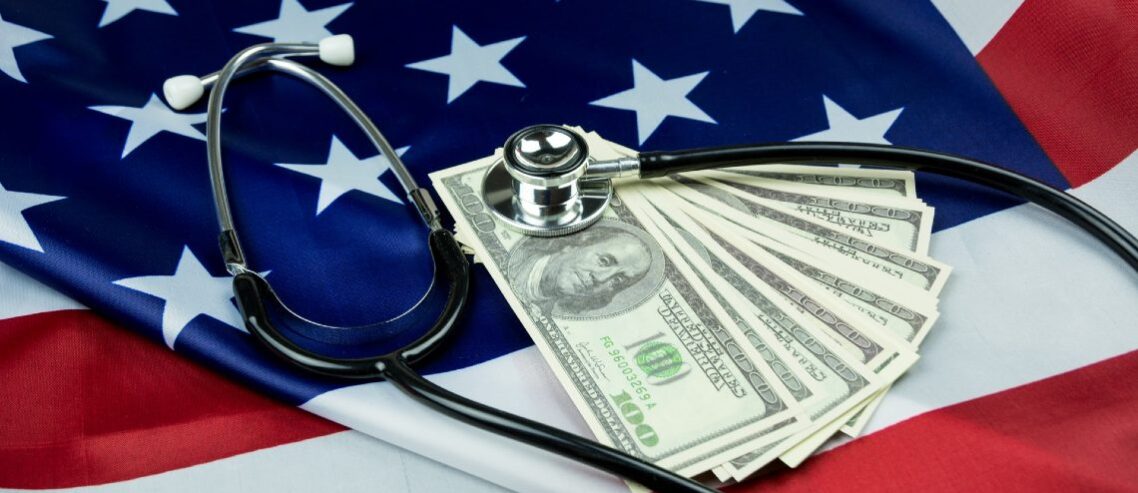Differences between private and public insurance in the United States
The United States is well known for its exorbitant medical costs. So much so that even international health insurance plans, which cover virtually every country in the world, often exclude America due to its high costs. While around 60% of the US population has private health insurance to take care of their health needs, the debate over whether public vs. private insurance is more economically efficient seems endless – especially since the institutional reform of the Affordable Care Act (a.k.a. Obamacare) in 2010. In this Pacific Prime article, we look at the differences between public and private hospitals in the United States.
Discover the world's top
health insurers.
Compare quotes with
a click of the button.
Public healthcare coverage
Are you wondering: “what is public insurance?” Essentially, public health insurance plans are plans provided by the government for low-income individuals or families, the elderly, and other individuals that qualify for special subsidies. The primary public health programs in the US are Medicare, Medicaid, and CHIP.
Medicare
Medicare is a federal social insurance program for seniors (generally aged 65 and over) and certain disabled individuals. With the aging population, the costs of Medicare are projected to rise, so The Affordable Care Act has taken some steps to reduce the burden on Medicare.
Medicaid
In November 2021, 78.9 million lives were covered by Medicaid. Medicaid, which covers millions of very low-income children and their families, is funded jointly by the federal government and states but is administered at the state level. The Affordable Care Act dramatically expanded Medicaid, so that everyone with an income under 133% of the federal poverty level who does not qualify for Medicare is eligible (depending on the state).
Children’s Health Insurance Program (CHIP)
CHIP is a federal-state partnership that serves certain children and families who do not qualify for medical assistance, but cannot afford private coverage. This program aims to supplement the coverage gaps between Medicaid and private insurance.
The pros and cons of public health insurance
Public health insurance is more affordable than its private counterpart, as it has lower administrative costs and often requires no co-pays or deductibles. However, public health insurance is also less flexible, as policyholders are typically given a limited selection of medical service providers. This is because many medical establishments still refuse to accept government-sponsored health insurance plans. On top of that, therapy may not be reimbursed by public health insurance, even if it’s deemed necessary.
Private healthcare coverage
Now to answer the question: “what is private insurance?” Private health insurance refers to plans provided by private companies, and are often provided by an employer or other organization with which the policyholder is affiliated. It can be purchased on a group basis or by individual consumers. Currently, the majority of Americans receive their health coverage through private health insurance plans.
Employer-sponsored
Provided to employees as a benefit of employment, employer-sponsored health insurance is typically more generous than public healthcare insurance programs like Medicare. Since 2015, Obamacare has mandated that all employers with over 50 full-time employees should provide affordable health coverage to employees in order to avoid a tax penalty. With that said, workers who receive employer-sponsored insurance tend to be paid less in wages due to the insurance premiums paid by the employer.
Individual health insurance
Individual health insurance plans are plans you purchase for yourself or your family through no association with an employer or other organization. The costs of these plans may vary greatly, depending on what kind of plan you choose and what benefits you receive. Overall, individual health insurance plans tend to cost less than group insurance plans.
The pros and cons of private health insurance
Private health insurance policies are more flexible than group policies, and give the policyholders more options as to which doctor or medical facility to visit. There are also more options on the market, so policyholders have more plans and a wider network of providers to choose from.
However, when comparing private insurance vs. government insurance, private health insurance plans come with a heftier price tag. Furthermore, unlike public health insurance, private health insurance requires you to pay a monthly/yearly premium, which is not something everyone can afford.
Get expert insurance advice from Pacific Prime
If you’d like to supplement the coverage gaps of public insurance policies with a private health insurance product, you’ll be faced with countless insurance solutions to choose from – not to mention private health insurers.
Since it can be difficult to know what to look for and get your head around insurance jargon, it helps to work with a reputable insurance broker like Pacific Prime. With over 20 years of experience, we have the industry knowledge and expertise to match clients with plans that best suit their needs. Our team of experts also publishes weekly blog posts, as well as reports and guides, to help simplify insurance for all.
Contact us today for impartial insurance advice and a free plan comparison!
- What is School Insurance and How Insurance Brokers Help? - April 16, 2024
- An Essential Step to Lifelong Health: Long-Term Medical Insurance - April 10, 2024
- How can family-friendly policies benefit your company? - March 10, 2023



Comments
Comments are disabled for this post